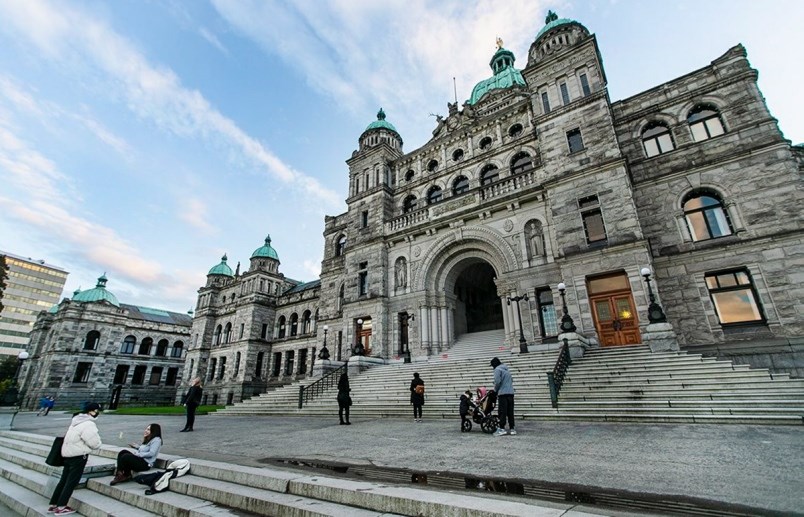British Columbia’s approach to business taxation has long been uncompetitive with other large provinces.
Thanks to a poorly designed sales tax, the province has one of the highest effective tax rates on new business investment in Canada.
But recent federal and provincial personal income tax hikes have also created one of the highest top combined income tax rates in North America. Taken together, B.C.’s business and personal income taxes represent an impediment to the province’s long-term economic growth prospects – a problem the new David Eby government, which seems open to reform in other areas of policy, could help solve.
Let’s start with business taxation. B.C.’s official business income tax rate is higher than Alberta’s and comparable to the rate in Ontario and Quebec. But this doesn’t tell the whole story. Unlike in these other provinces, B.C.’s sales tax applies to “inputs” to business production, which makes it harder for companies to invest. Consequently, B.C. has the highest average level of tax on new investment of any large province.
On the personal income tax side, B.C.’s problems are of a more recent vintage. Over the past decade, many governments across Canada have increased their tax rates on top earners including doctors, engineers and entrepreneurs. But B.C. has enacted the largest increases of all. The John Horgan government increased B.C.’s top personal income tax rate from 14.7 per cent to 20.5 per cent, which, combined with a federal personal income tax hike, pushed the province’s top combined rate from 43.7 per cent to 53.5 per cent in less than a decade.
This rapid increase has badly undermined B.C.’s personal income tax competitiveness. In fact, the province now has the fourth-highest personal income tax rate in Canada and the United States, just 1.3 percentage points lower than the highest in Newfoundland and Labrador and 11.1 percentage points higher than the average combined top personal rate (42.4 per cent) in the U.S.
A closer look at nearby U.S. states is even more striking, because Alaska and Washington state don’t have state-level personal income taxes at all. This means that after accounting for federal rates, the top rate in these two neighbouring jurisdictions is 16.5 percentage points lower than B.C.’s rate.
So what are the economic costs?
For starters, high tax rates make it more difficult for the province to attract high-skilled highly mobile workers. While taxes aren’t the only determinant of where people choose to live and work, a top income tax rate that’s 10 percentage points (or more) higher than other jurisdictions could help persuade people to look elsewhere. And high tax rates also reduce the incentives for additional work and productive economic activity, which hampers long-term economic growth.
B.C.’s tax competitiveness problem is nothing new. The province’s poorly designed sales taxes have been putting the province’s businesses at a disadvantage for years. However, the last decade has seen federal and provincial personal income tax hikes, which have made this component of the province’s tax system less competitive as well. Taken together, these two factors comprise a broad tax competitiveness problem that the Eby government should address if it wants to make the province a more attractive place to live and do business.
Ben Eisen is a senior fellow at the Fraser Institute.
This column was first published in BIV's print edition. For first access to print content, become a BIV subscriber.



